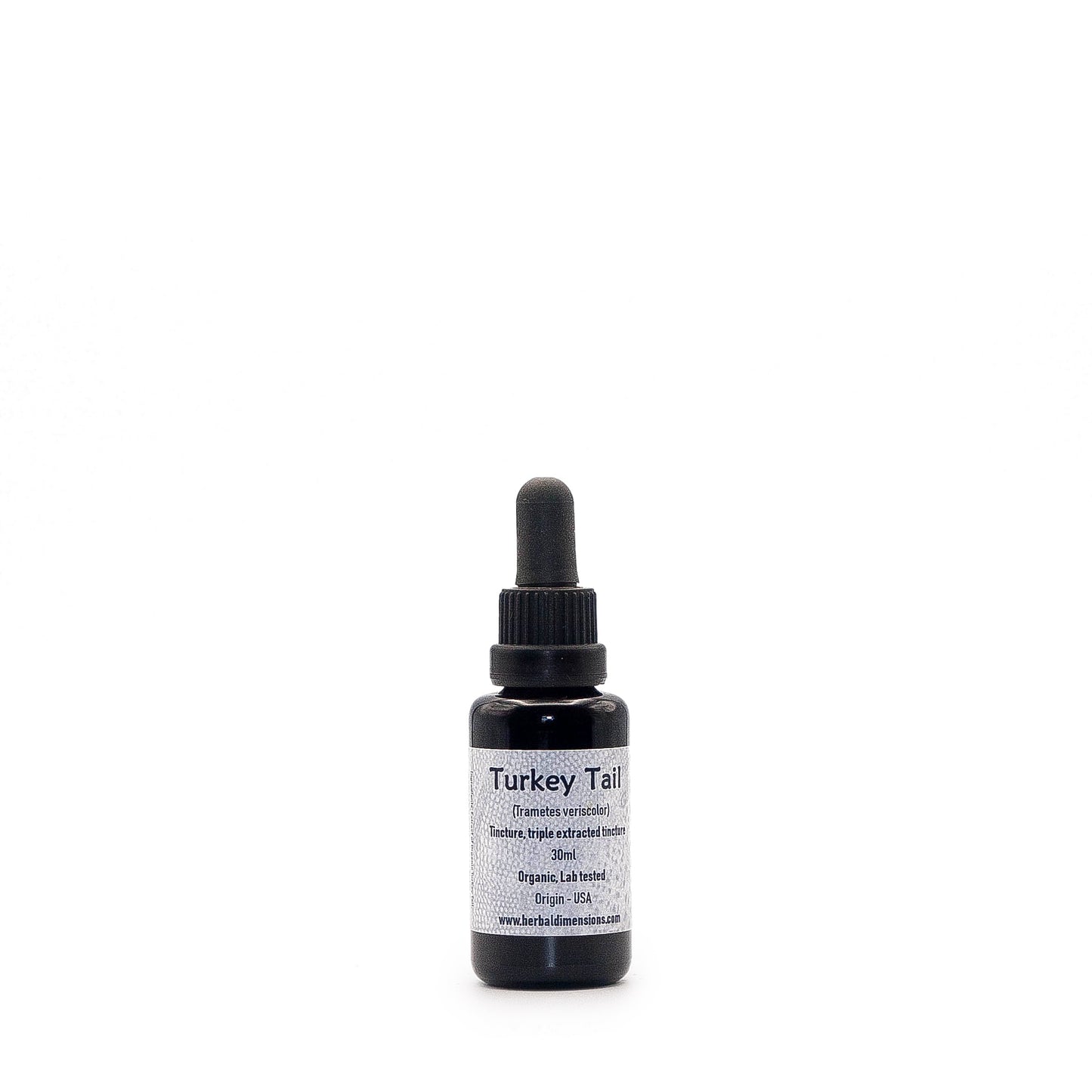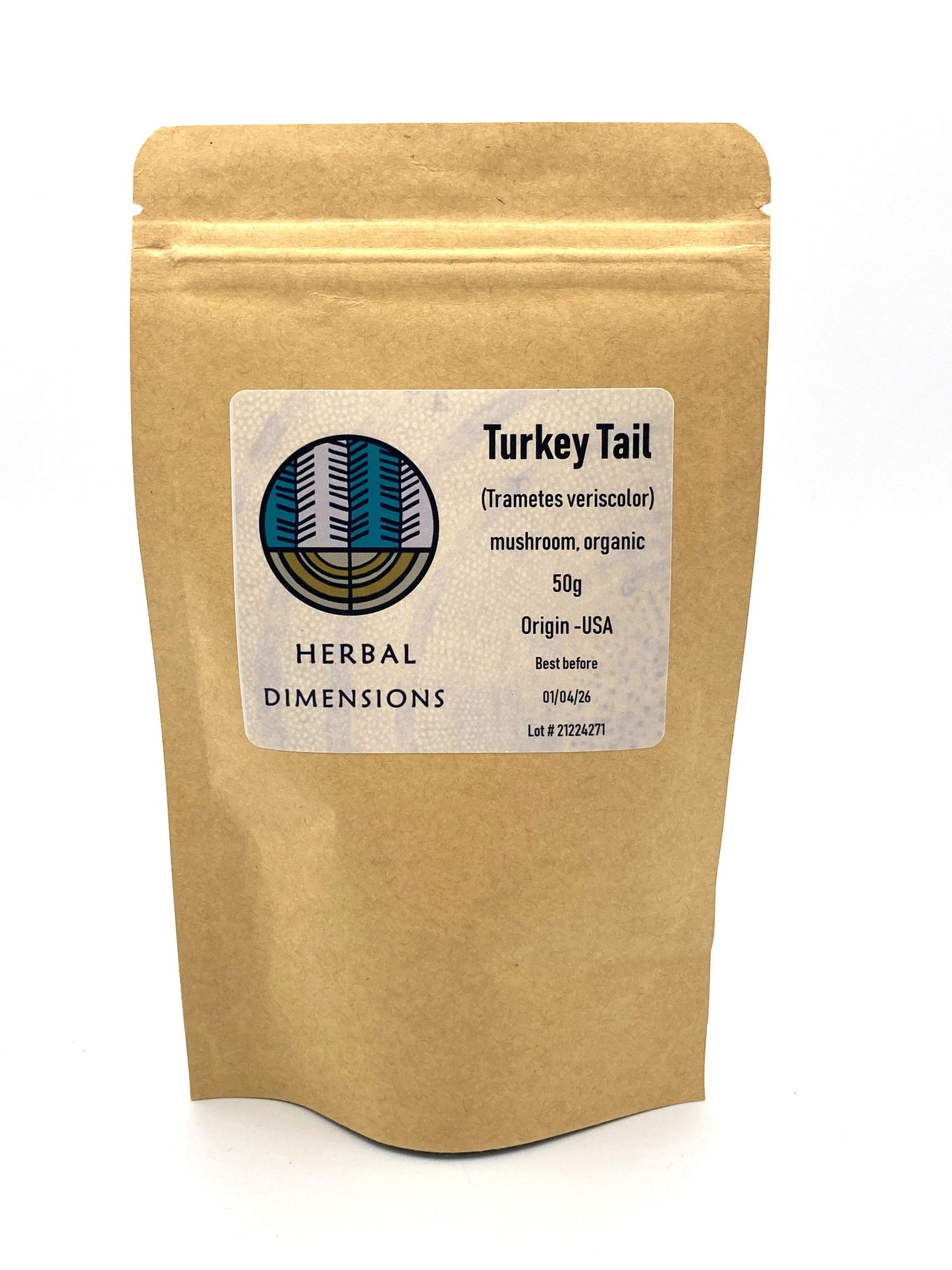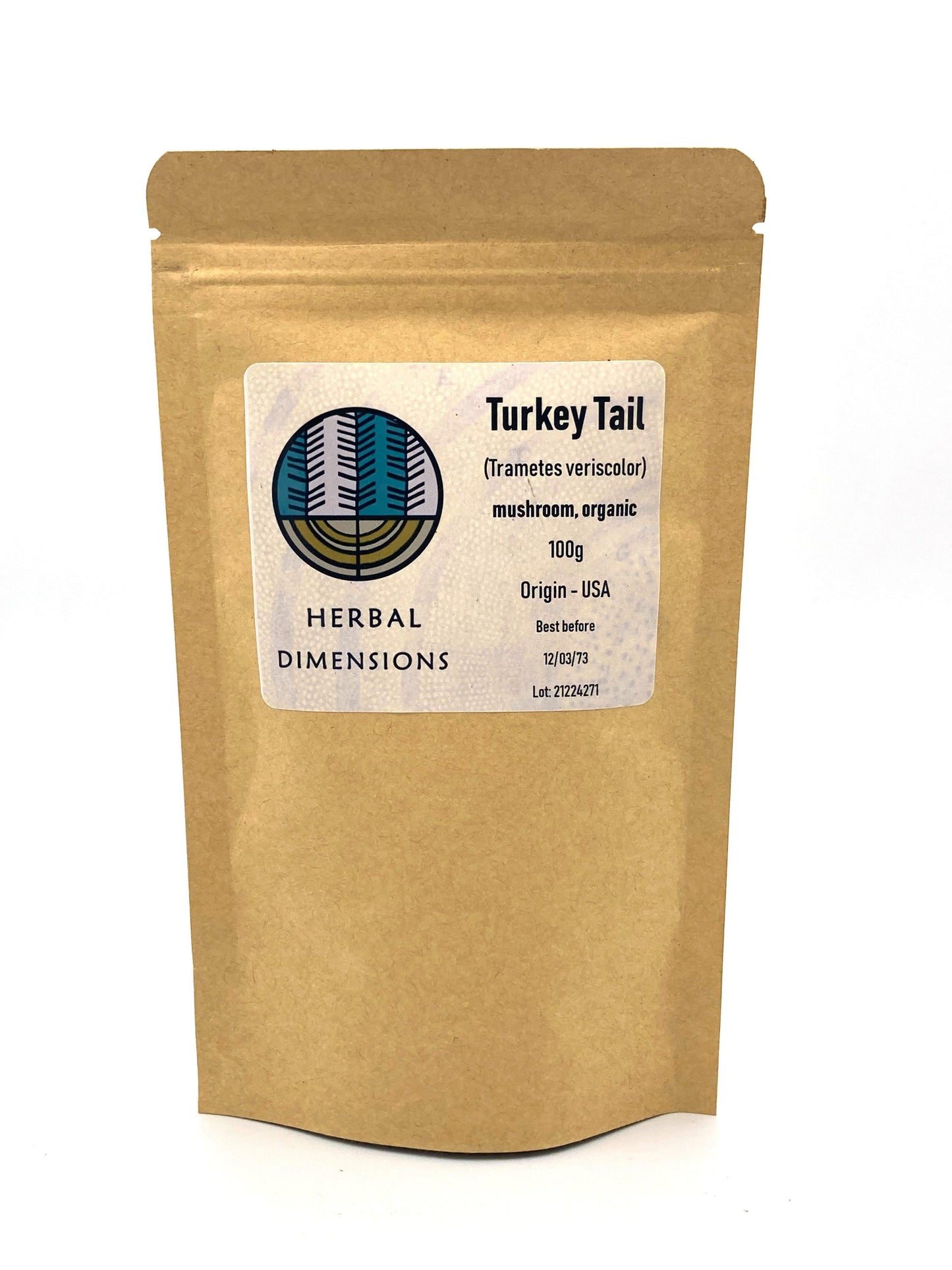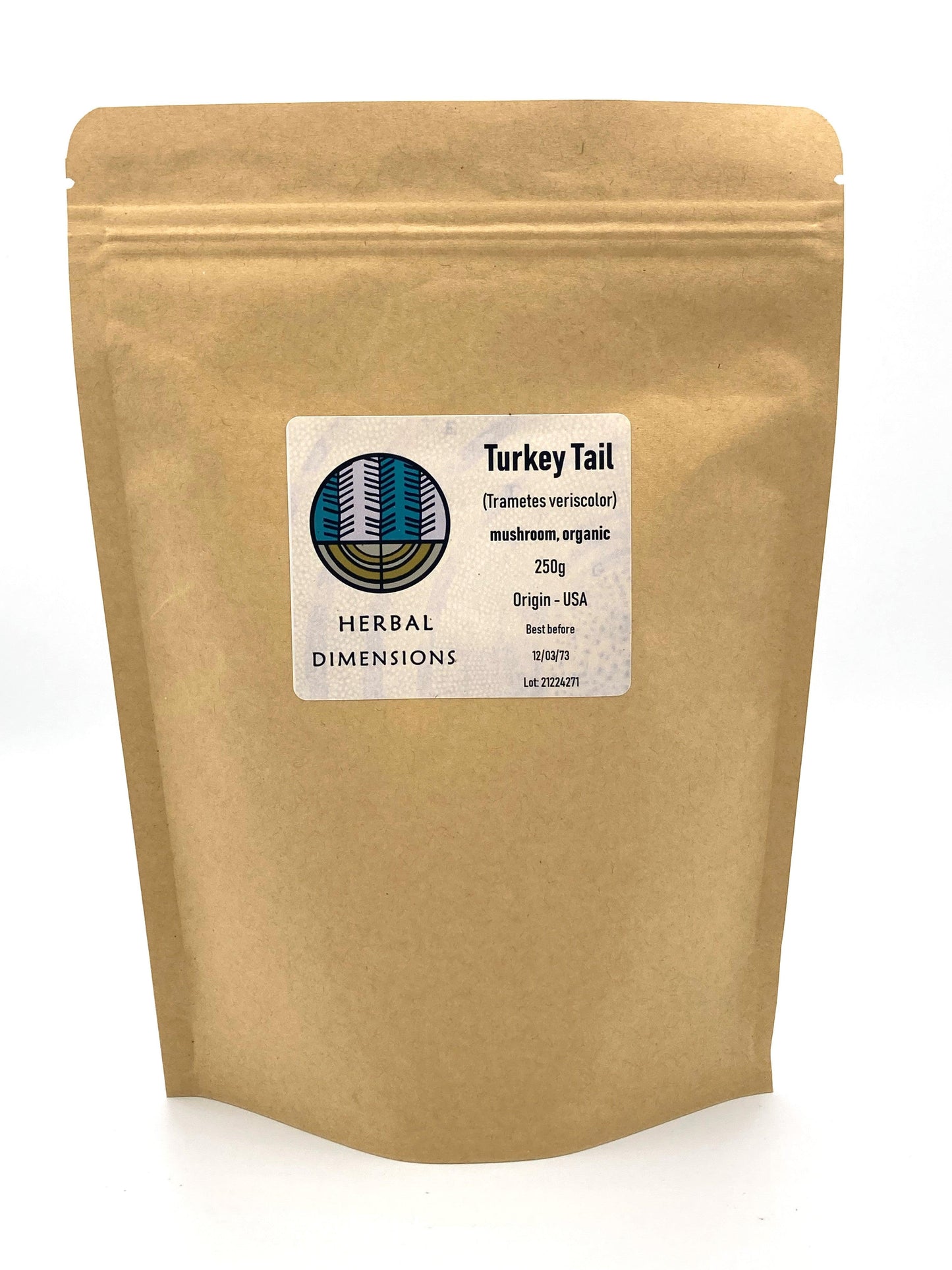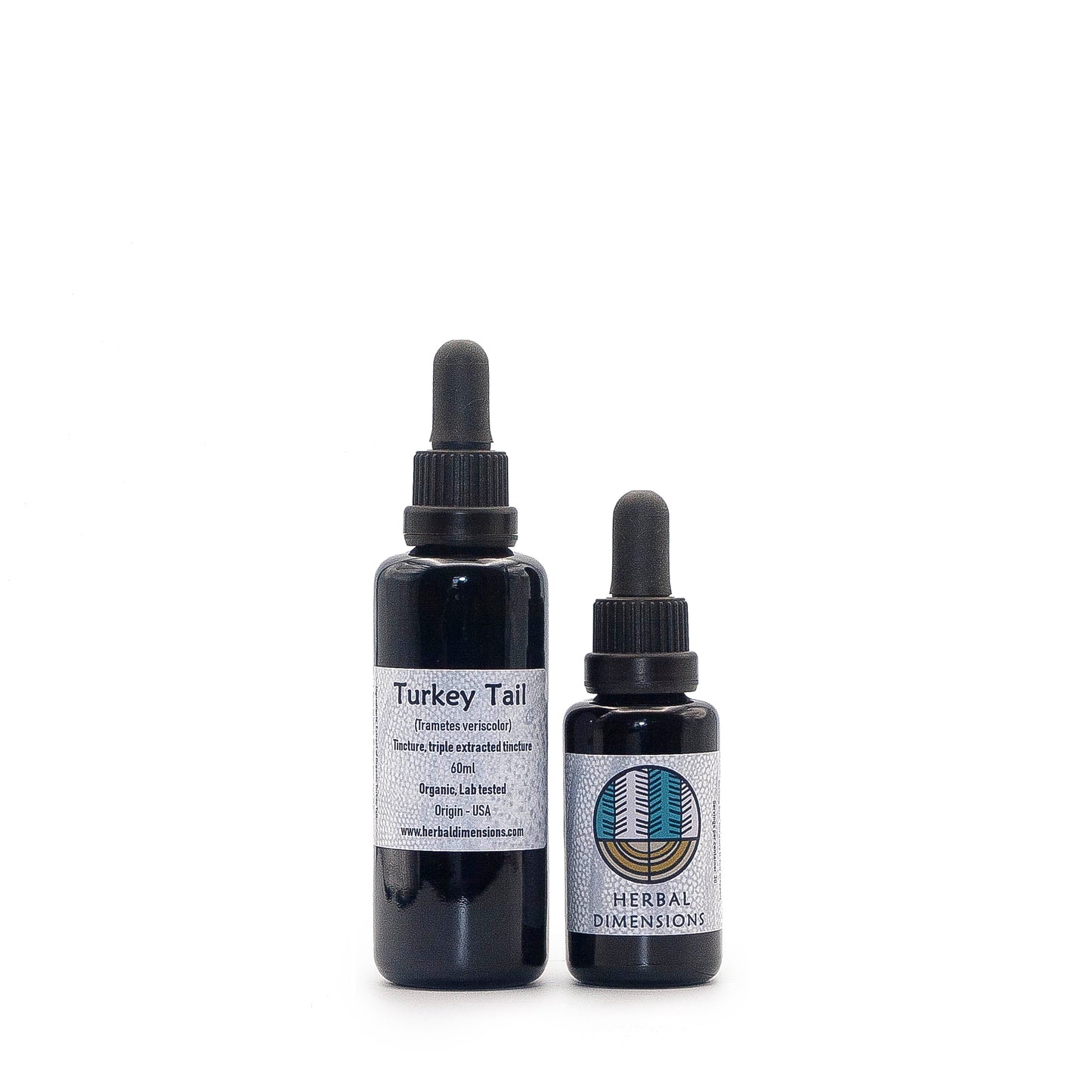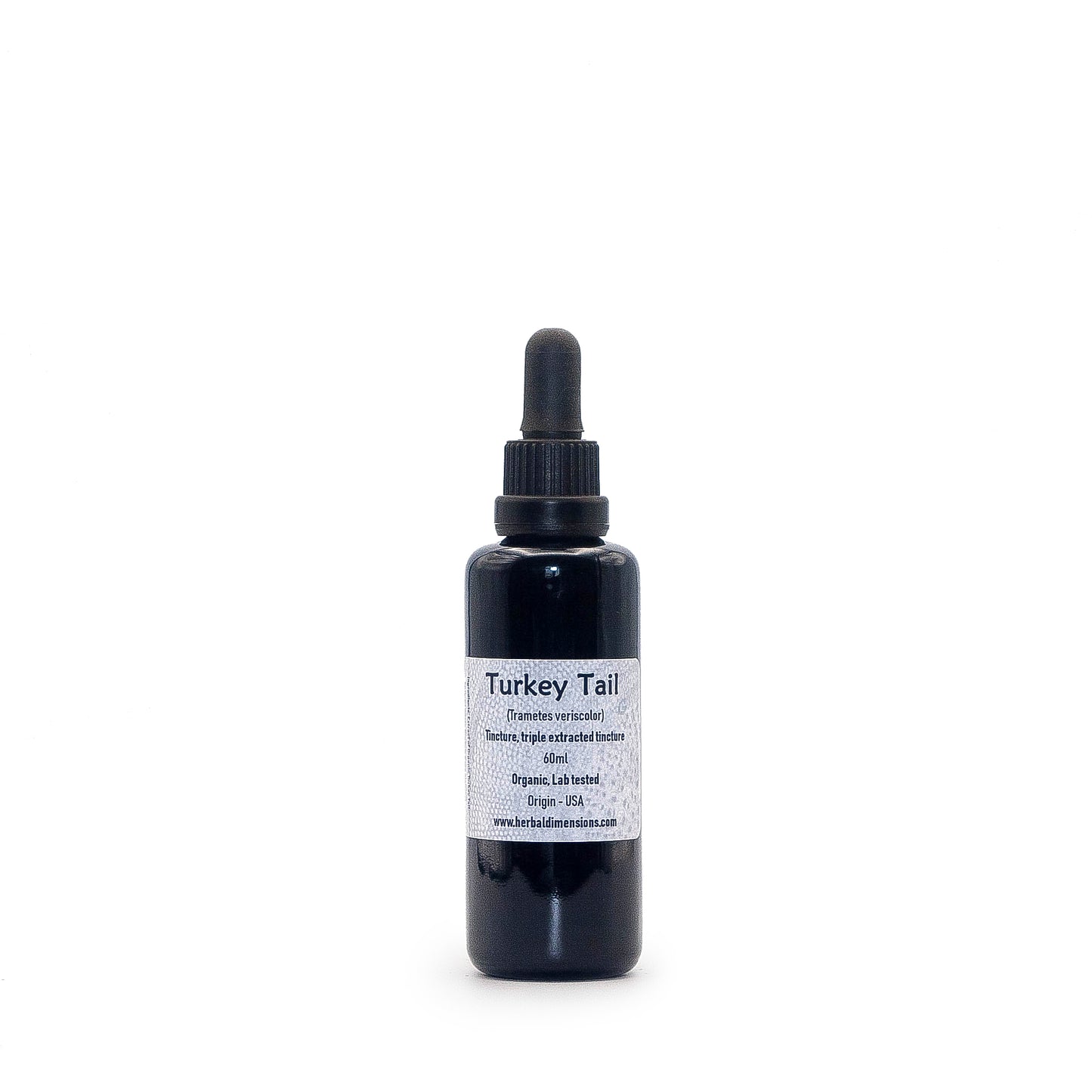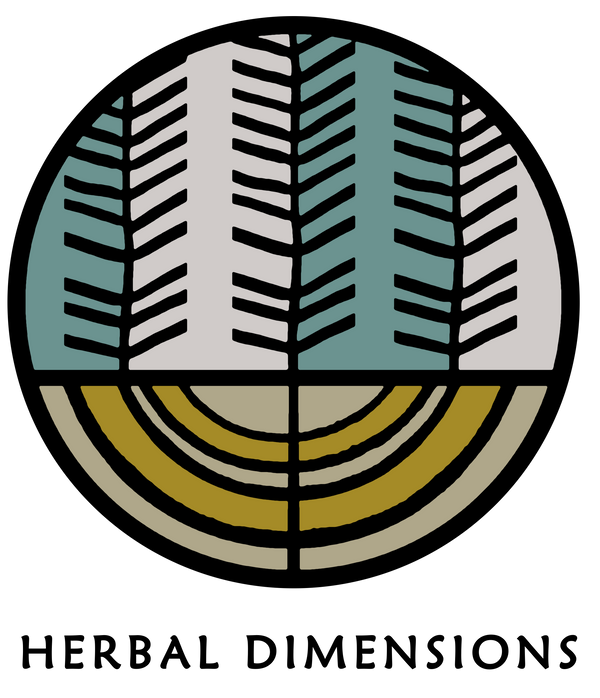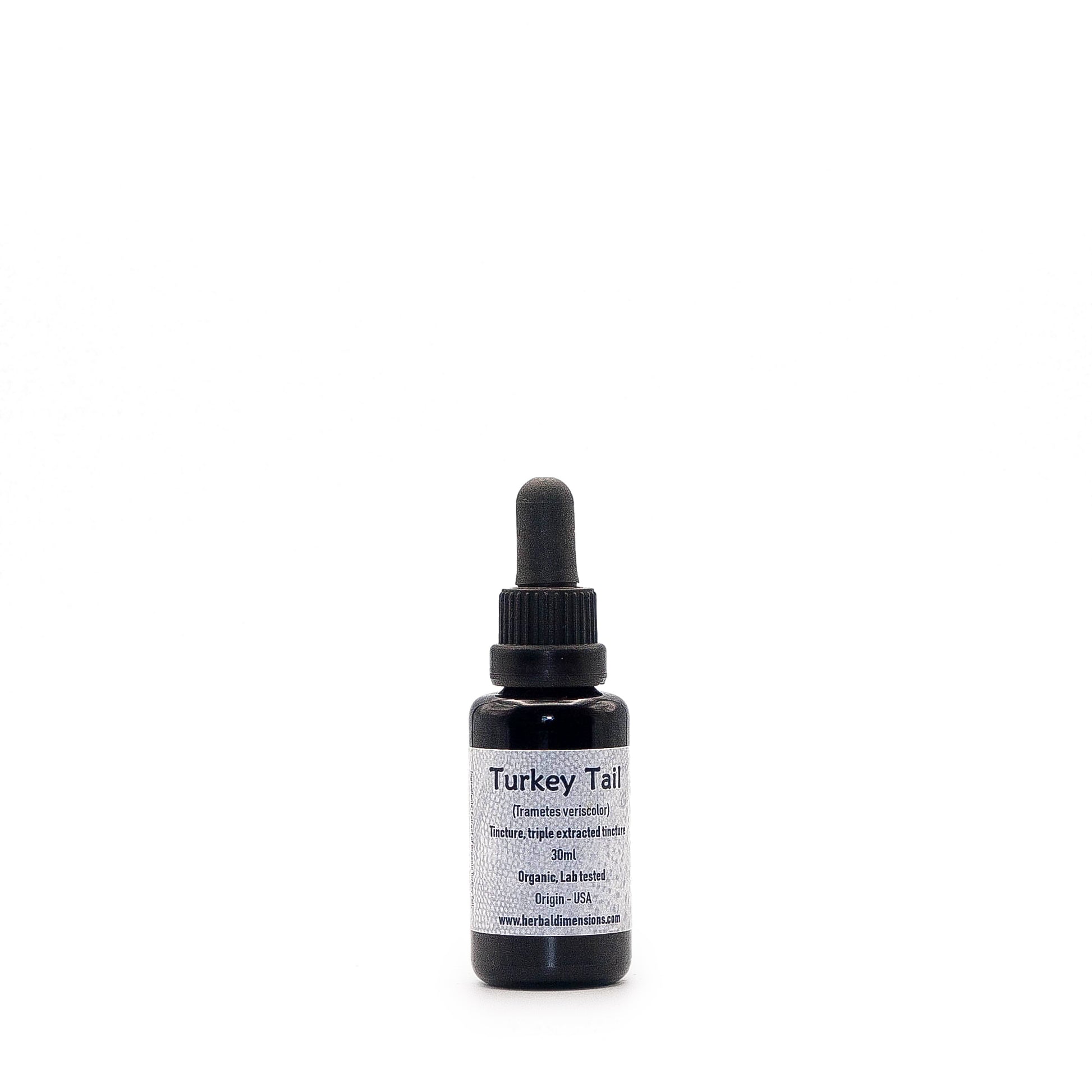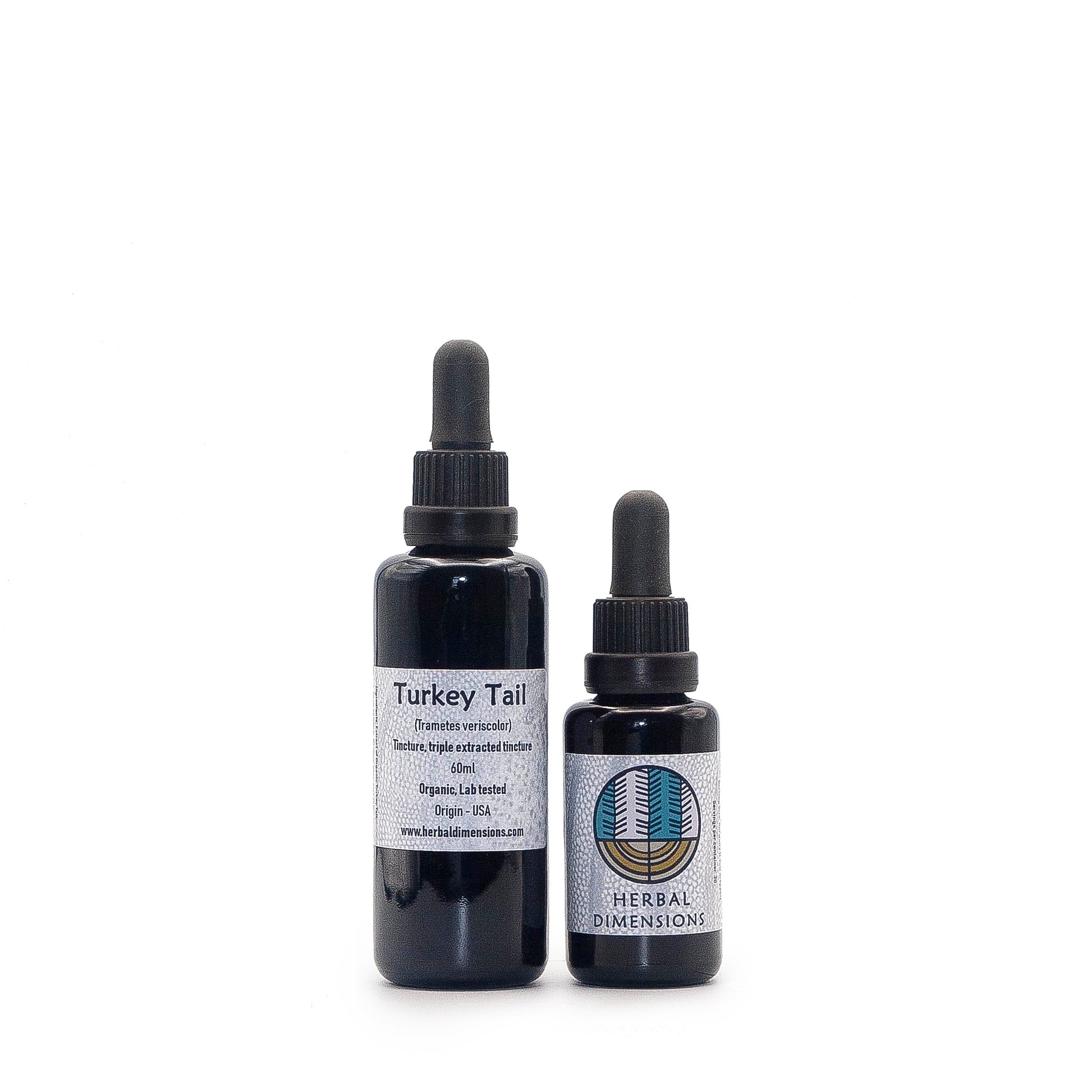Herbaldimensions.com
Turkey Tail (Trametes versicolor)
Turkey Tail (Trametes versicolor)
Couldn't load pickup availability
Share
Embrace nature's wisdom with our premium Turkey Tail Mushroom products - available in both Tincture and Powder form. Ethically sourced and crafted from the highest quality Turkey Tail Mushrooms, our offerings serve as a powerhouse of antioxidants, renowned for immune-supporting properties. Whether you choose our potent tincture or versatile powder, each provides a nutrient-rich blend designed to bolster your body's natural defences.
Scientific name: Tramétes versicolor
Other names: Turkey Tail, Yun Zhi (Chinese - cloud fungus), Kawaratake (Japanese - mushroom by the riverbank).
Family: Polyporaceae
Parts used: Fruiting body
Turkey Tail mushroom is a common polypore mushroom found throughout the world. It is named such because its fruiting bodies resemble the shape and colour a wild turkey. In fact 'versicolor' its species name reflects the multiple colours this mushroom can express.
Turkey Tail is a powerful mushroom with a multitude of properties. Studies suggest Turkey Tail may aid in regulating immune systems and maintaining proper prostate, hormonal, liver, and kidney health.
Benefits of Turkey Tail
- Anti-inflammatory
- Antimicrobial & antiviral
- Antioxidant
- Immunomodulatory
- Improves microbiome
Our farm partners have been growing and extracting mushrooms for 40+ years and mushroom powders simply do not get any better then this. In addition to taking steps to ensure purity and a high constituent content, we are also concerned about providing mushroom products in which the constituents are in a bioavailable form. The main constituents of mushrooms, the 1,3-Beta Glucans, are tightly bound to the cell walls and have a low degree of bioavailability in raw mushrooms.
To overcome this and increase the bioavailability of the constituents, all of our mushrooms undergo a steam activation process that breaks down the cell walls and frees the 1,3-Beta Glucans from the chitin.
References:
https://en.wikipedia.org/wiki/Trametes_versicolor
https://www.ncbi.nlm.nih.gov/books/NBK424937/
